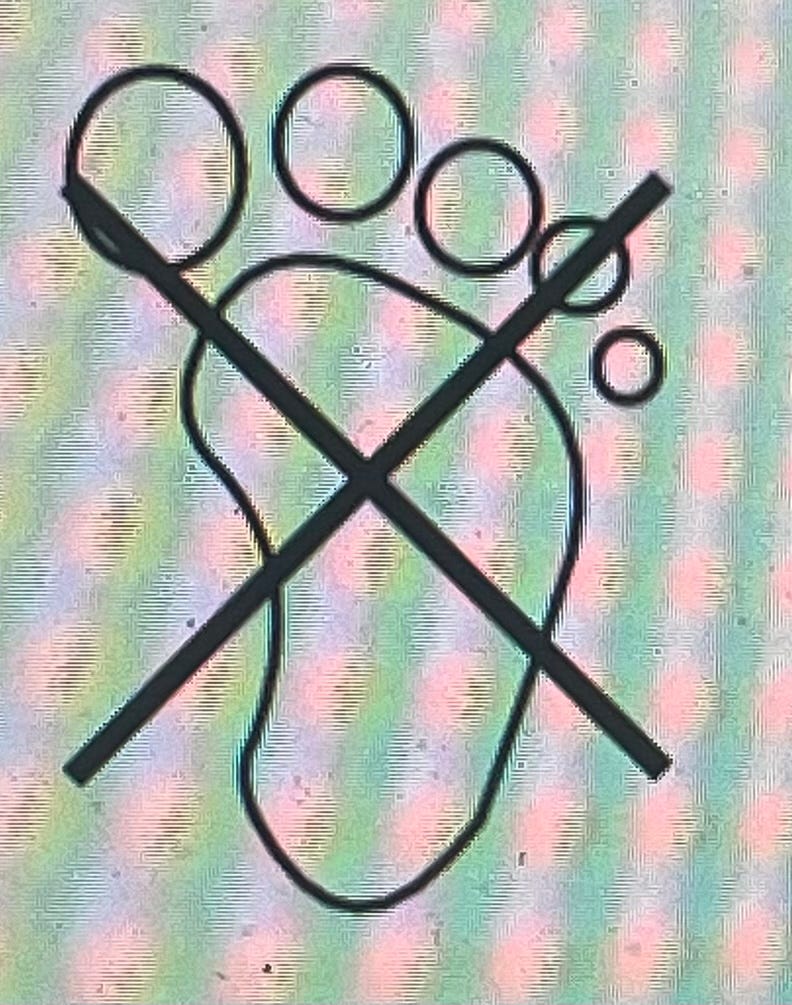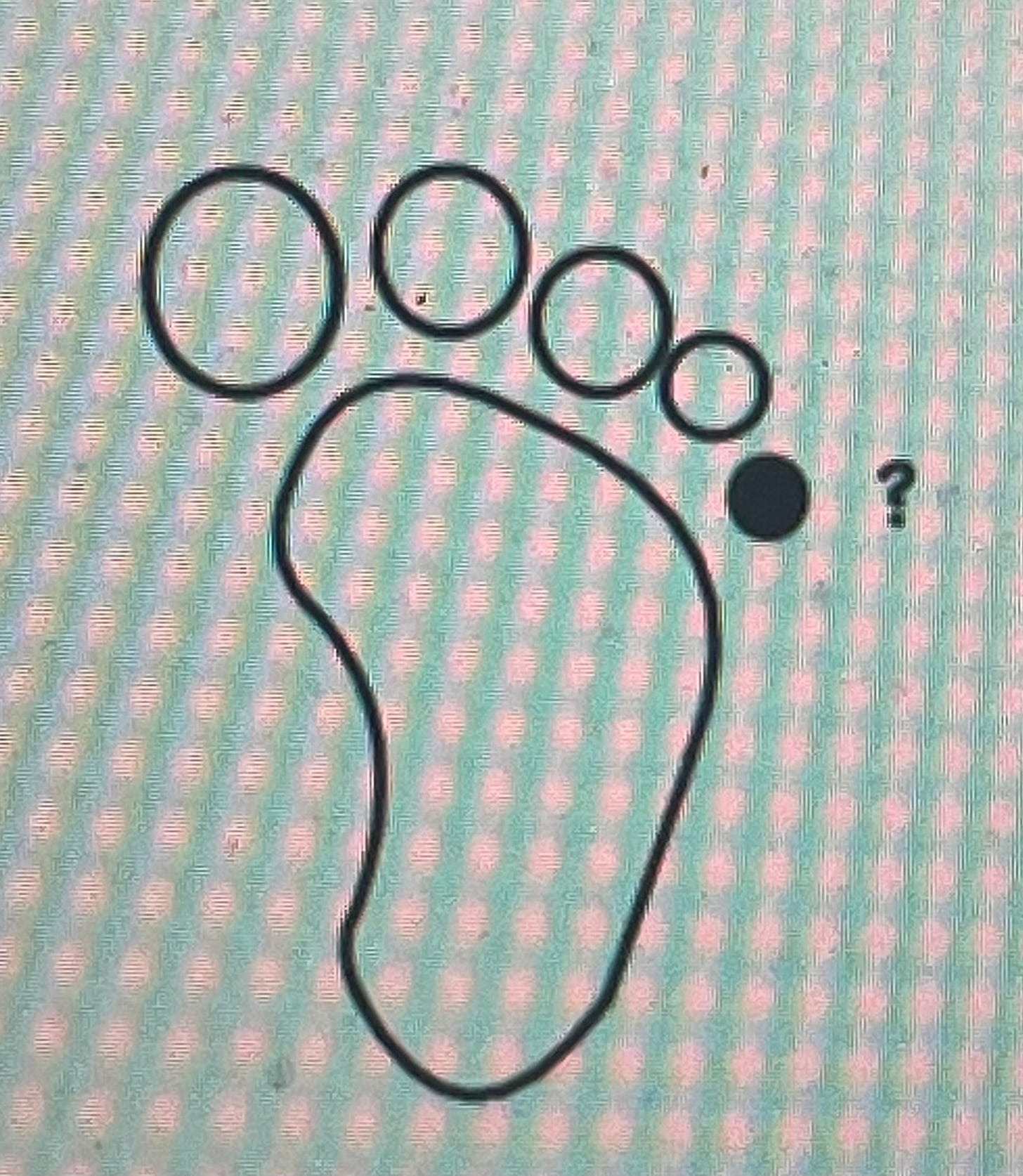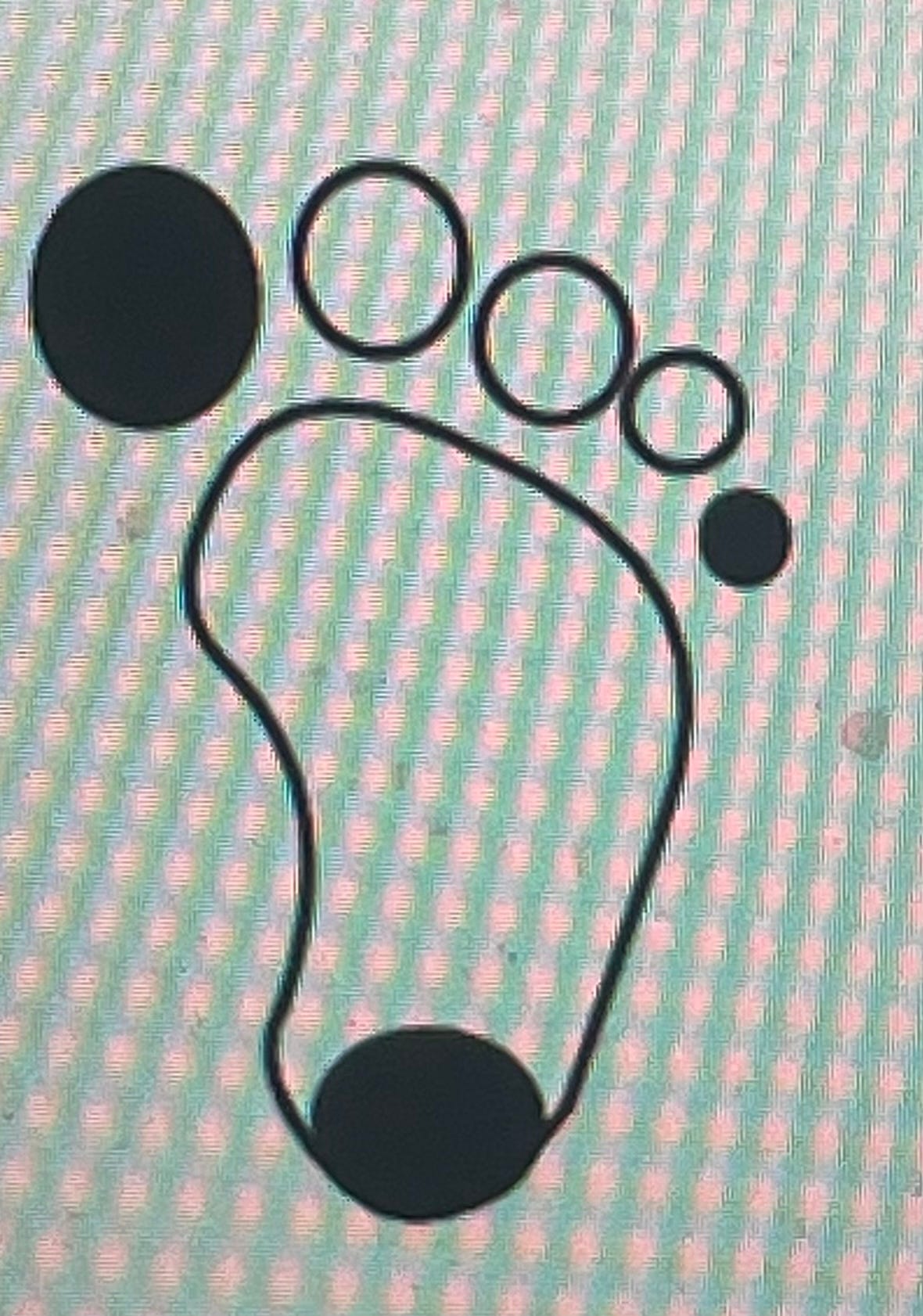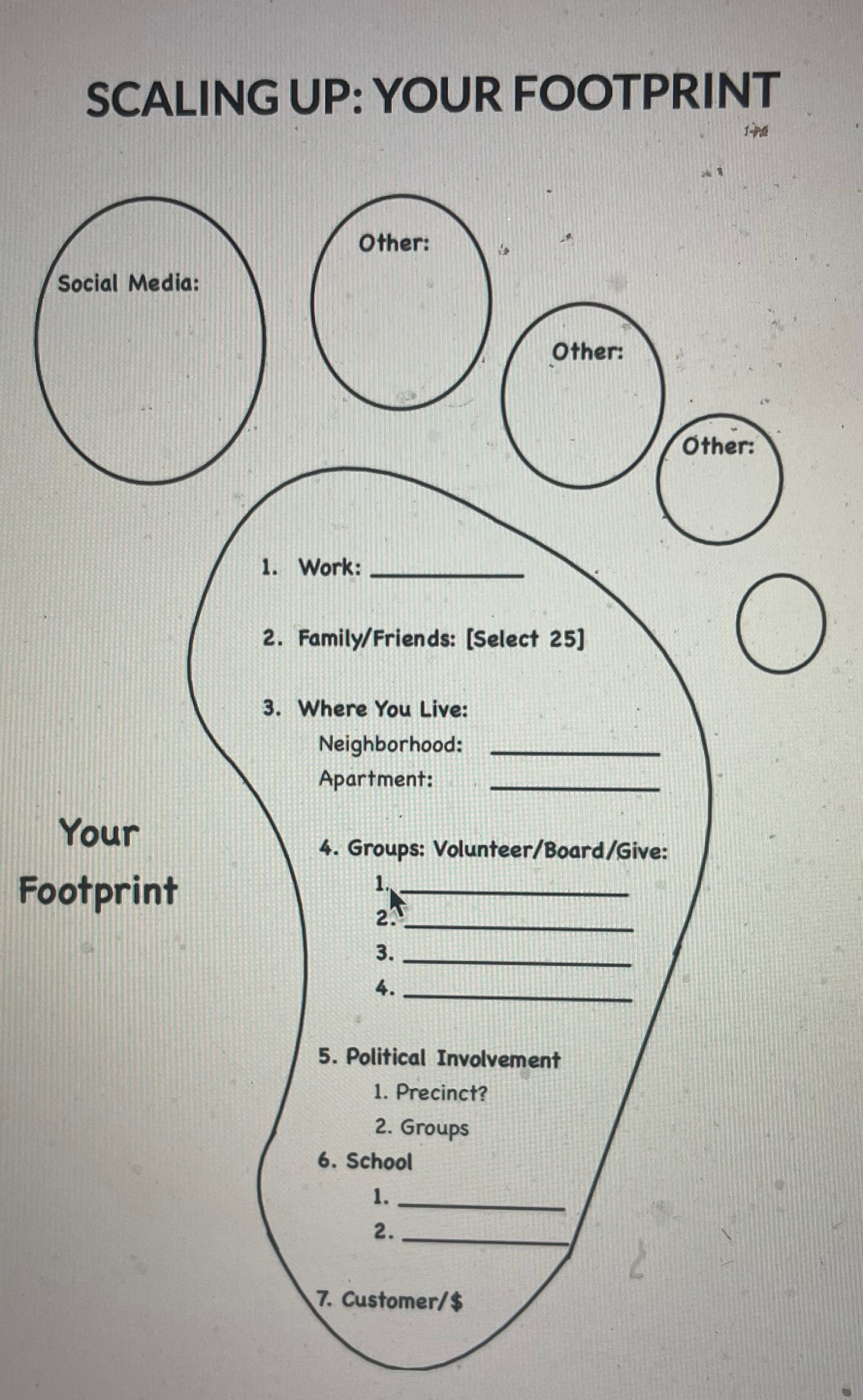On this final day of 2023, as we all consider our resolutions and commitments for 2024, I’m going to humbly suggest you add one resolution if you haven’t done so already.
And I’m going to humbly suggest that if thousands (or more) Americans make this simple resolution, it would change our country. In 2024, and far beyond.
What is it?
To explain, I’m going to share (and slightly edit) an excerpt from my book “Saving Democracy:”
To paraphrase Carly Simon, this Post is about you. Yes, be vain for the next few minutes, because we’re going to take an intense look just at you.
I’m going to challenge every reader to think about what you’ve been doing to lift democracy in your life, and what more you can do beyond what you’re doing.
This is critical because to overcome the immense scale of the attack against democracy, “we all” are going to have to scale up our individual effort, then combine those efforts together into a hugely scaled collective effort.
To say it differently—Stacey Abrams and Michelle Obama and different parties and advocacy groups and candidates are all going to do some heroic things to lift our democracy. But you and I can’t simply wait for them to save us while you and I do the same thing we’ve always done. That’s not gonna cut it.
We all have to scale it up in our own lives.
And that means you, the reader, have to scale it up.
And the first and biggest step you can take is a shift in your mindset. There’s one simple decision you must make.
Here it is: incorporate “saving democracy” into your personal mission statement.
As we enter 2024, make it one of your new year’s resolutions.
Just do it.
And how does that one shift make a difference?
If done right, it exponentially scales up your efforts. To borrow from the military, you’re force multiplying.
Too vague?
Don’t worry—I’m about to walk you through exactly how it works, starting with the most powerful (and under- utilized) asset in the battle for democracy:
Your Footprint in the World
We all have a footprint in this world. YOU have a footprint of impact and influence.
It’s a combination of the many communities you’re a part of and the many things you do. Every day. Every week.
Let’s look at the core elements of your footprint:
It starts with your family. And it includes your neighborhood. Your church. Your workplace. Your schools (present or past), or your kids’ schools. Maybe your gym, or the restaurant or coffee shop you go to most days. It includes organizations and civic activities you’re a part of—as a volunteer and supporter, or member. These days, for many, your social media activity is part of your footprint as well.
Most of you dedicate something tangible to each element of your footprint.
What, specifically? What do you each “have” that you can dedicate to these elements?
Here are a few:
your hard work
your time
your intellect
your financial resources (including dollars you spend
and give)
your reputation and credibility
your networks
your voice/communications
your passion
your creativity
other skills you’ve developed
and more.
So, you each have a footprint, and you have personal assets and resources you dedicate to the many elements of that footprint.
Now, let’s see where your political activity fits into your footprint. It’s a wide spectrum, of course.
Most Americans’ sole form of political participation is voting. Many vote, many don’t, and it fluctuates by the year. Beyond voting, most don’t participate in our democracy. For them, neither political activity nor lifting democracy is part of their footprint at all. (As wild as 2016 was politically, one study found that less than 4 percent of Americans did any work for a campaign or party that year—a marked decline from prior decades. The number was 17 percent in 1964.):
For most whose political involvement does go beyond voting, the activity remains minimal. Maybe they donate some support to a candidate running for office. Or, like that 4 percent in 2016, volunteer a few times in a campaign, or put up a yard sign for one hundred days. Helpful, but still not enough to register even as an element in their footprint. Maybe a toe or two are involved, but that’s it:
For those rare Americans whose political involvement is more substantial—my guess is if you’re reading this book, that may include you—that activity does amount to an element of your footprint. To use my list above, it most naturally falls into your “other organizations and civic activities” bucket. Or perhaps it falls into your neighborhood/community bucket. Either way, it’s one other element of your footprint. Your big toe is now in on the action. Or your heel. But not close to the whole footprint:
Even then, most keep that political activity separate from others. It’s an extra meeting on a weekend morning, or weekday evening. It’s an extra Zoom call, or event we attend. It’s aFacebook page we visit and occasionally comment on. A few hours of volunteering here and there, usually close to election time. We rarely let politics spill over into other things we do, in part because incorporating our politics into other elements feels like an unwelcome intrusion. Uncomfortable. Awkward.
And when we engage in that political activity, we usually dedicate just a handful of our assets to it. For the most part, our time and resources, mixed in with some level of passion. By volunteering. Supporting candidates financially. Perhaps using our communications skills (making phone calls, writing postcards, posting online, etc.).
Of course, the most energetic political activists do more than this. For you, it’s a bigger and more important part of your footprint, and you draw upon more of your personal assets to do this work. Lots of time. Lots of passion. Lots of communicating. More financial support. You tap into your network. Especially around peak election time. Well done!
But here’s my observation. And my fear. It’s still not enough.
The sum total of individual involvement I’ve just described is not enough to save democracy. Too few people participate at all. Too few include political activity as even an element in their footprint. And for those rare people who do, most only include politics as just another discrete element in their footprint— and the activity ebbs and flows depending on campaign cycles. Which still doesn’t lift it high enough. Not even close.
It’s not incorporated enough into all that we do. We don’t scale it enough.
So how does incorporating “saving democracy” into your personal mission statement change that?
First, framing the activity as “saving democracy” eliminates the hesitance to incorporate it into other things we do. Imagined, executed, and communicated correctly, it takes it from partisan to patriotic.
Second, even for those who participate in politics, it takes the activity from something we do sporadically—around certain political campaigns and years—into something we do all the time. As John Lewis did. As the suffragists did.
Third, and most importantly, once we make it a core part of our mission, we prioritize “saving democracy” beyond being just another thing we do—a discrete element of our footprint. It becomes part of everything we do, as it must.
Force Multiplying: Using Your Entire Footprint to Save Democracy
But for now, let’s return to your new commitment to incorporate “saving democracy” into your personal mission statement.
By doing so, you just incorporated that new mission across your entire footprint. Political activity isn’t just another activity you do. Saving democracy occupies the core of who you are. You use your entire footprint to get it done.
By doing that, you are challenging yourself to help save democracy in every single thing you do—no longer just confined to the political activity you separate from everything else. Instead, you now examine every element of your footprint, and add any and all of the above steps to protect democracy whenever you can, however you can. You incorporate them into the “bloodstream” of all or most of your other activities, all the time.
That simple adjustment puts our individual and collective pro- democracy efforts on steroids. It’s a personal force multiplier for democracy, with explosive consequences. (It’s also what the other side is doing.)
A simple analogy underscores the potential impact of this shift:
When Congress passed the Motor Voter Law in the 1990s, staid and boring motor vehicle bureaus around the country suddenly shouldered a critical new mission: registering voters—lifting democracy. Ever since, staff are required to ask all visitors if they would like to register to vote. Overall registrations spiked shortly after the law took effect. And now, millions register or update their registrations through the bureau, due to those simple staff questions.
Why so many? And why register voters at the Bureau of Motor Vehicles and not, say, create separate Voter Registration Centers all over communities?
Because in our car-dominated world, these bureaus and their hard-working public servants already interact with millions of Americans every day as part of those visitors’ regular course of business. Customers are walking in for a reason besides politics—often because they have to. Add it all up, and the BMV has one enormous footprint. So, adding voter registration to the BMV’s core mission, when the BMV and its workers’ collective footprints include engaging with millions of people who pass through for other reasons, provides a huge boost to democracy.
Simple.
But that begs two questions.
First, for everyone: where else could we add saving democracy as a core mission? Take a moment and think of every place and institution in your community that already engage people for other reasons.
Second, for you: which activities in your life could do the same thing?
Go back to your own footprint. With your new core mission of saving democracy in mind, think of all the activities you do on a daily basis that overlap with everyday people. Think about which institutions or groups or causes you engage with, which themselves engage people as part of their everyday life. (We’ll write all this down in the coming chapters.)
Your job in a restaurant. At a store. At a law firm. In a doctor’s office. At a social service agency.
Your participation at your kids’ school.
Your volunteer work at a soup kitchen or homeless shelter. A nonprofit board you serve on.
Your union local.
Your tenant association or community group. These are all elements in your footprint.
Can they play a role to help save democracy? Can they add saving democracy to their core mission? The answer is almost always going to be yes….
In your job, in the other roles you play in life, ask yourself how you can do the same thing.
But don’t stop there.
Now think of places where you donate money, or spend money? Or volunteer time?
Charities you give to. Restaurants you frequent. Where you get your hair cut.
Are these institutions saving democracy as part of their core mission? If not, why not? They should be.
Next, think of other relationships you have.
Who’s in your network? Friends. Family. Colleagues. Book club compatriots. School alumni. Fraternity brothers or sorority sisters. Union brothers and sisters.
What institutions fall within their footprints?
What public-facing services are they involved with?
To get specific:
Do you happen to know the mayor or newly elected member of City Hall or County Commission?
Do you know a member of the school or library board? Or a museum?
Do you know someone who runs a restaurant, or sits on the board of a nonprofit, or is involved in public housing?
Can they add saving democracy to their core mission, or that of those organizations?
Ask them.
And if they’re not, ask them why not? Because they definitely should be.
Like those restaurants, far more than most political groups we may be part of, so many institutions in your or your network’s footprints are engaging a far greater stream of people over the course of their regular business. So once we add “saving democracy” to the bloodstream of what these institutions do, and what their workers do, it scales up fast. Their footprints are put to work for democracy.
As I’ll explain below, it’s even more powerful when you enlist the places that engage the very people whose voices are being subverted by voter suppression.
And again, the activity I’m mentioning here is largely nonpartisan. It’s not about a certain candidate. There’s nothing partisan about urging participation in our democracy. So there’s no reason to be shy about proposing it in your workplace. Or where you workout.
In fact, for organizations that care about their workers or constituents or customers, they should want to do it. It should be part of their mission statement—not just because it’s part of being an American, and good for democracy, but because it is in their organization’s interest, and their constituents’ interest, to maximize their representation in our democracy.
Of course, there are political and partisan activities you can also add to your footprint once you’ve made the commitment that saving democracy is part of your core mission. I’ll walk through more of those in future chapters too.
But the key point for now is that the first big step you need to take to fight for democracy is to add “saving democracy” to your core mission statement, and then brainstorm every way that the people and places and institutions in your footprint can do the same. My guess is you’ll discover you have a far greater potential to lift democracy than you’ve ever realized.
The diagram below starts the process of you doing this—later chapters will guide you as you complete your plan:
As you work through it, identify the central elements of your footprint. Then brainstorm what interactions each element has with people as part of their regular course of business.
NOW this is a resolution that can make a big difference if we all make it.
For more on how to do this well, go HERE.
Happy New Year!
And let’s all work to save democracy in 2024.









Put your foot down.
To stamp out Republican self obsessions.
As a step for democracy
As a step for exercising your rights.
Putt your foot down.
As a resounding Yes!
To animate
The feet of the statue of liberty
Stomp away!
delighted with this fantastic new years greeting from you David...thanks as always, with appreciation.